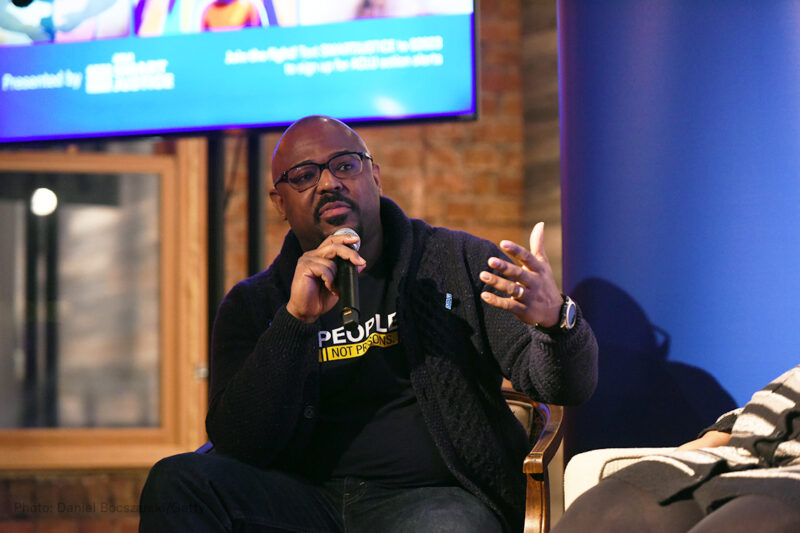
“Cobb C-L-3-6-9-1, let’s go. Get your shit. You’re outta here.”
While I am sure that this was not the last thing said to me before I walked past the gun tower and through the barbed wire fence at the Pennsylvania State Correctional Institution at Camp Hill on January 12, 2000, it is certainly the last thing I clearly remember hearing upon my departure from prison.
A friend of mine was waiting for me in the prison’s parking lot. I got in the car, and we drove silently for several hours towards Philadelphia where I was mandated to report to a halfway house, Community Corrections Center, for a minimum of 90 days.
I was out of prison, but the laundry list of tasks to complete prior to being eligible for release from the halfway house gave me a whole new set of items to worry about. I needed to find employment, complete a drug assessment program, and find suitable housing, which had to be preapproved by a parole agent I had yet to be assigned.
After serving 6 ½ years in Pennsylvania state prisons, I was now a “returning citizen.”
Today, I am more than 18 years removed from prison. But I am still a “returning” citizen, like millions upon millions of others. It’s estimated that more than 9 million people return home from jails each year in America. Additionally, more than 600,000 people are reportedly released from federal and state prisons annually.


%3Ciframe%20allow%3D%22autoplay%3B%20encrypted-media%22%20allowfullscreen%3D%22%22%20frameborder%3D%220%22%20height%3D%22315%22%20src%3D%22https%3A%2F%2Fwww.youtube.com%2Fembed%2FvnKv5xBQBLU%3Fautoplay%3D1%26version%3D3%22%20thumb%3D%22%2Ffiles%2F2018-04-25-reentry-thumbnail.jpg%22%20width%3D%22530%22%3E%3C%2Fiframe%3E
Privacy statement. This embed will serve content from youtube.com.
Today I am gainfully employed, living in stable housing, providing for my family, serving communities across the nation through civic and political engagement, and paying my fair share in taxes. Nevertheless, I am still subject to punishments, exclusions, and restrictions that impair my ability to pursue the American dream unencumbered. I may be thriving at life, but the threat of losing it all is ever present — and uniquely stressful.
My greatest fear is the loss of employment and income, which would force me to reenter the job market where I would once again have to contend with the pervasive culture of discrimination aimed at people living with arrest and convictions. After being tasked with studying the issue by Congress, the American Bar Association in 2015 identified over 45,000 federal and state statutes and regulations that impose “collateral consequences” on people convicted of crimes. While I was overwhelmed by the sheer number of such policies in place, I was all too familiar with their devastating impact on the lives of people who have paid their debts to society.
I had zero plans of becoming an advocate, activist, or organizer upon my release in 2000, but fate had other plans. I had the fortune of being hired and then rapidly promoted to an executive leadership position at a telemarketing company in Philadelphia. Over the year, I made the company’s hiring policies more inclusive and less discriminatory, which resulted in an explosion of hiring and growth. By centering formerly incarcerated people in leadership positions, our company became an invaluable resource to people living with arrest and convictions, as an estimated 40 percent of our nearly 700 employees had criminal records.
In 2004, the company shut down, and I found myself in search of employment, which I found easily enough. However, after just 30 or so days at my new job, I was terminated due to my criminal history, although I’d fully disclosed the past events in great detail.
Over the course of the next decade, I was hired and fired countless times. Additionally, I was denied life insurance, a car salesman license, a mortgage, and enrollment in a local university all due to my criminal record. My family suffered immeasurably, as we survived on the brink of homelessness numerous times. We depended upon the Supplemental Nutrition Assistance Program and a variety of other social programs in spite of my tireless efforts.
My experience was not an anomaly. As many as three out of four people remain unemployed a year after being released from prison, and only 12.5 percent of employers say they will accept job applications from a formerly incarcerated person. A prison sentence is not the only “debt” one has to repay society. For a lot of people, it’s a debt that can’t ever be repaid, a permanent status that we live with forever.
When I started to question why this was happening, I learned quickly that my hardships were rooted in tough-on-crime policies and a pervasive culture of discrimination. My increasing education and first-hand experiences led me to found a nonprofit organization that aimed to eliminate systemic discrimination practices targeted at people living with arrest and convictions. I focused my advocacy efforts on two separate areas: employment discrimination against those with criminal records and political organizing of the formerly incarcerated.
In Pennsylvania, individuals are eligible to vote immediately upon release. Over the years, we led voter registration and voter education drives that put issues of mass incarceration front and center during election seasons, forcing politicians to answer for the policies that discriminate against the formerly incarcerated.
Not all states, however, allow people to exercise their right to vote after their release from prison. Our inability to give people second chances extends even to basic participation in our democracy. The restrictions can be dizzying. Earlier this month, a Texas woman was sentenced to five years in prison because she voted without realizing that she was not allowed to because of her criminal record.
In the 18 years since I was released from prison, the trauma of being a permanent “returning citizen” has never fully subsided. The only thing I can do is continue to work to support the movement that aims to alleviate and reverse the trauma that millions of people across the country are burdened with because of a system that does not live up to its rhetoric about second chances. Reentry is a lifetime process, but it shouldn’t be.


